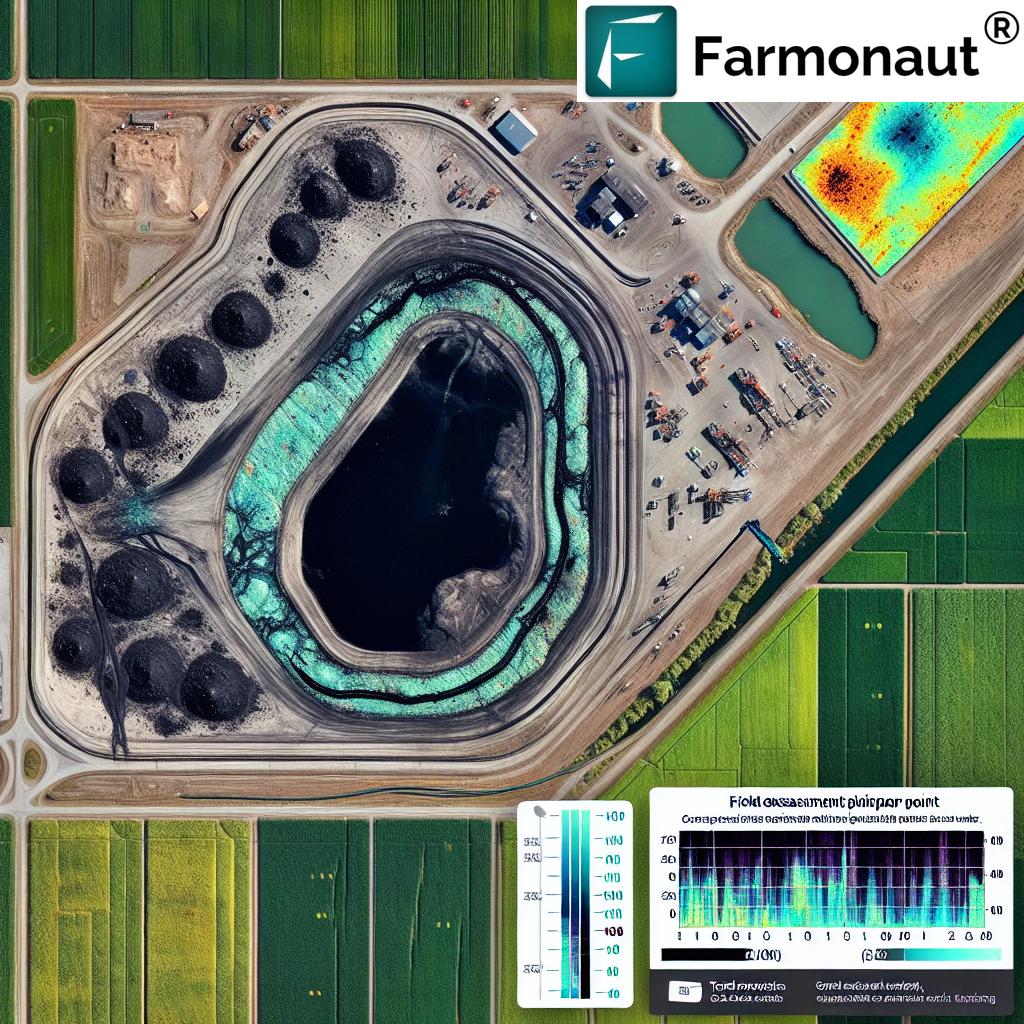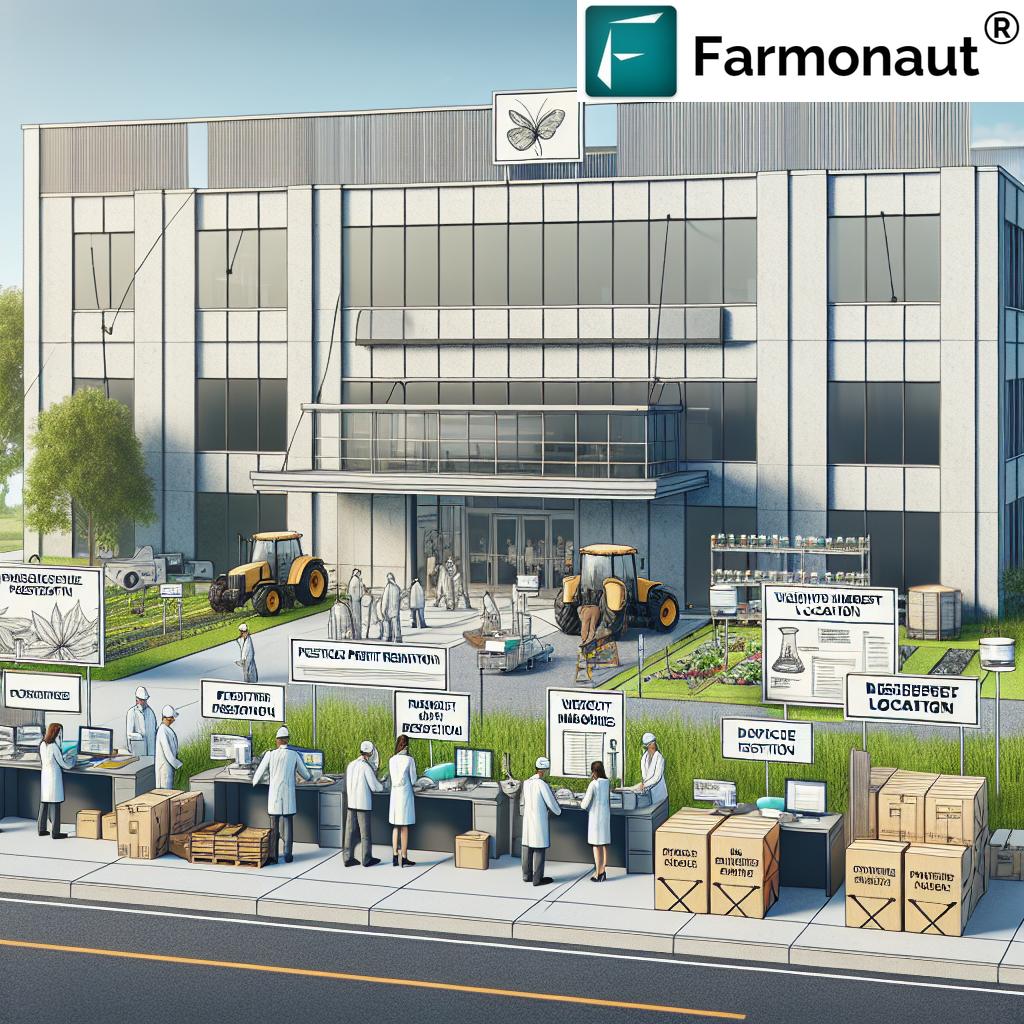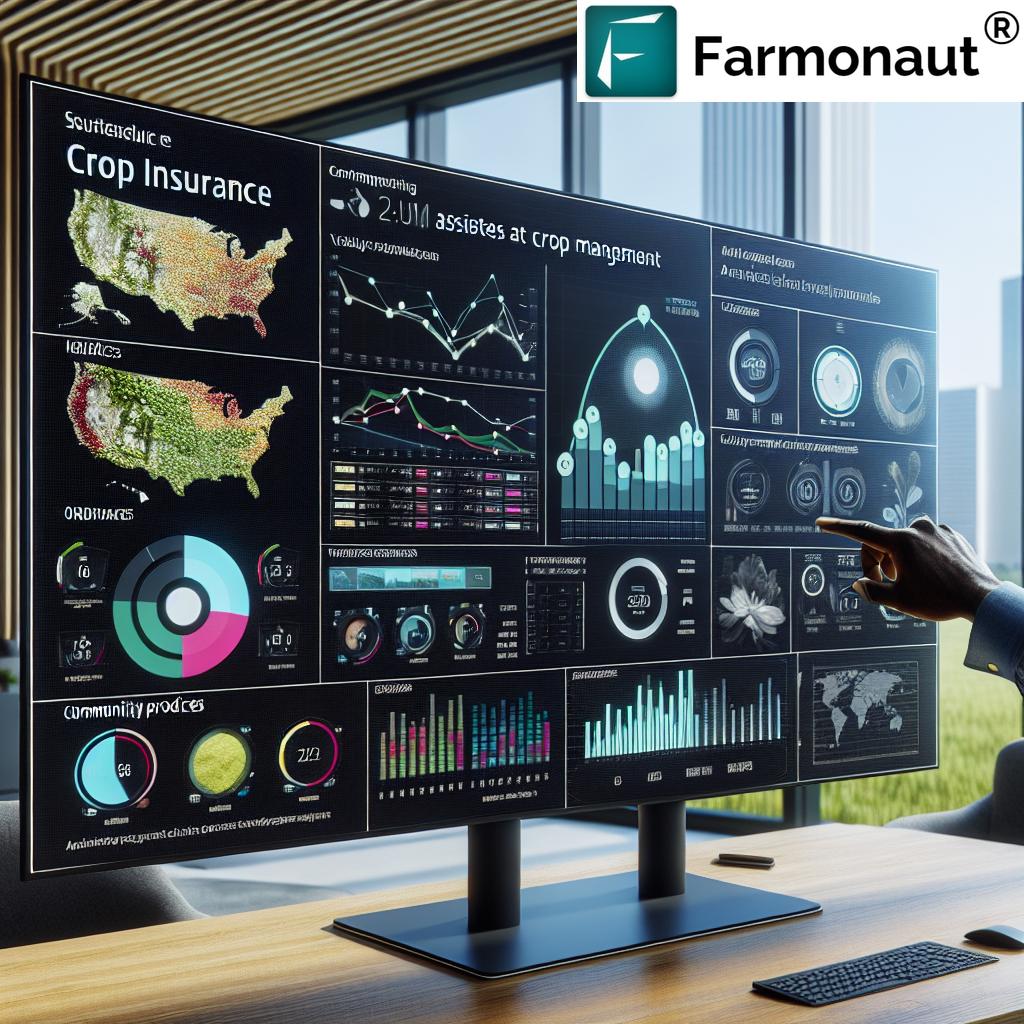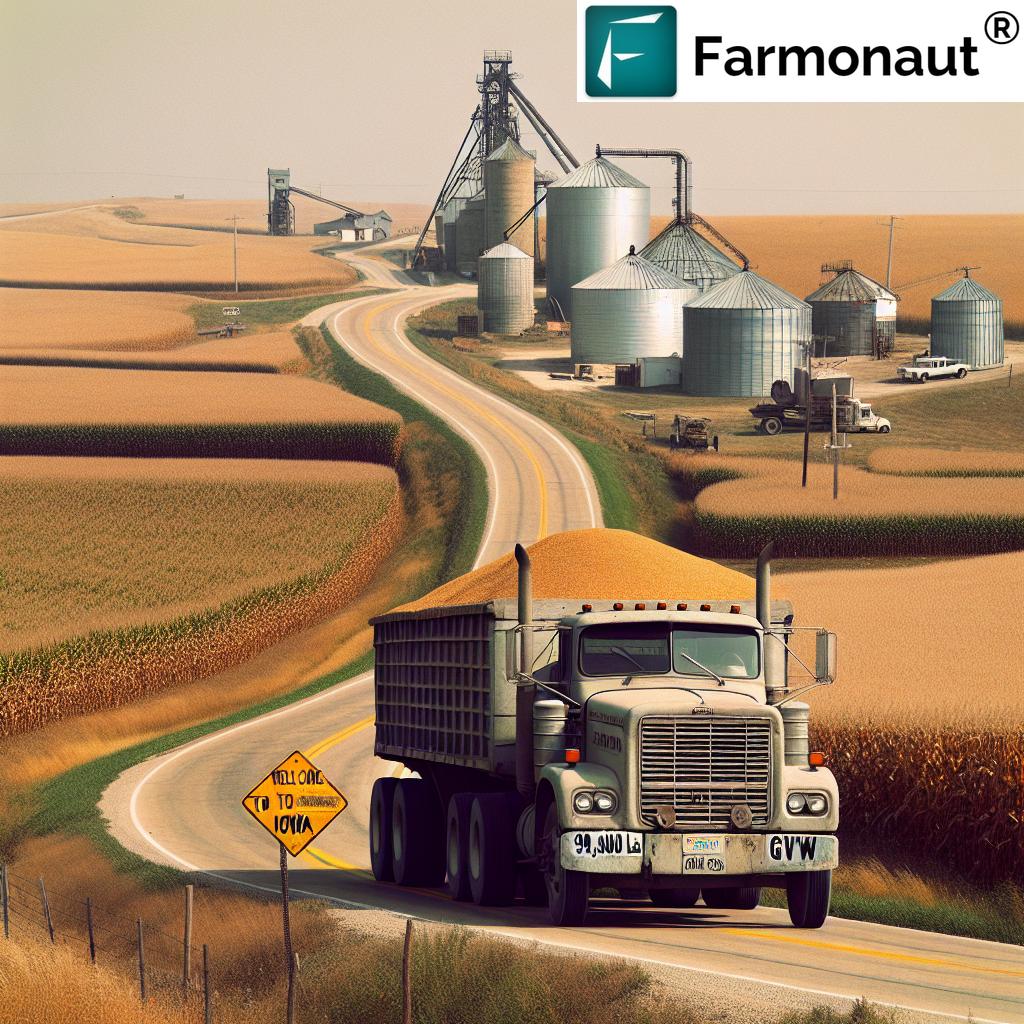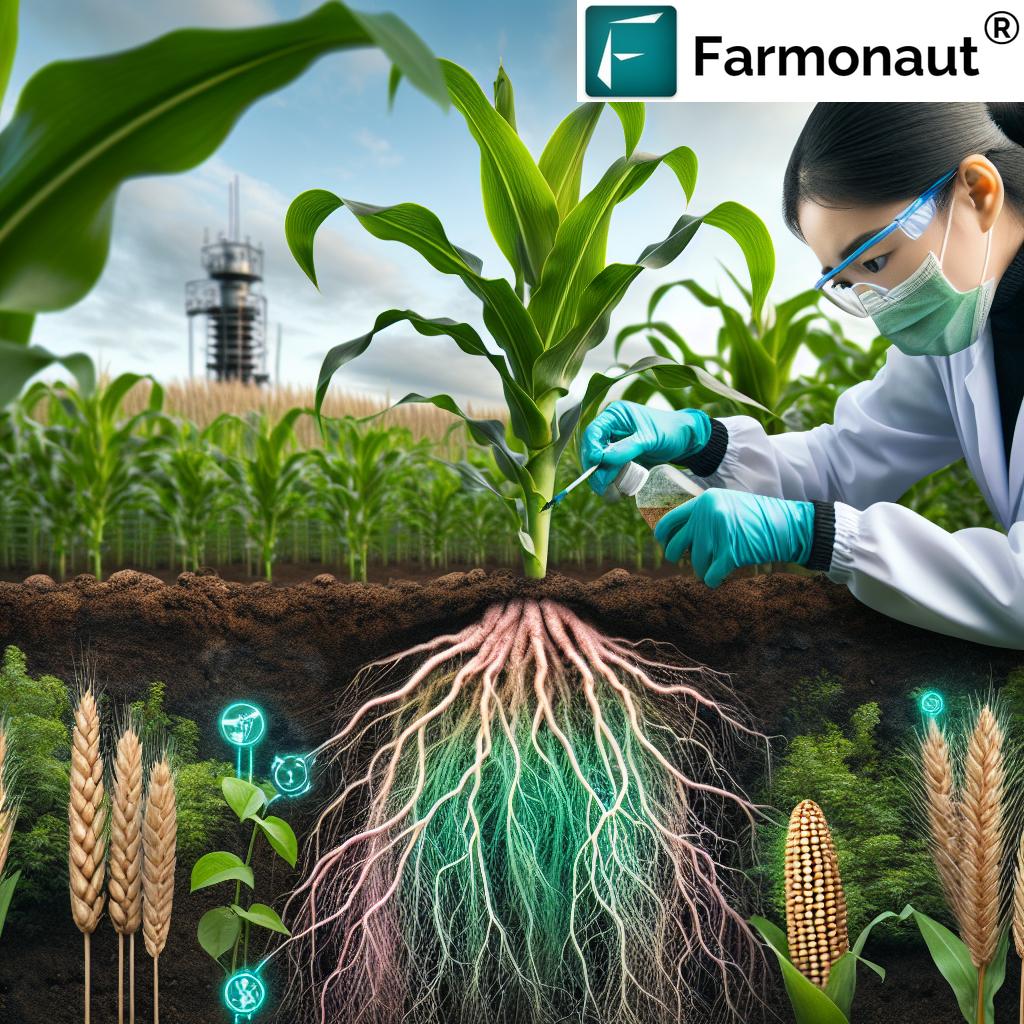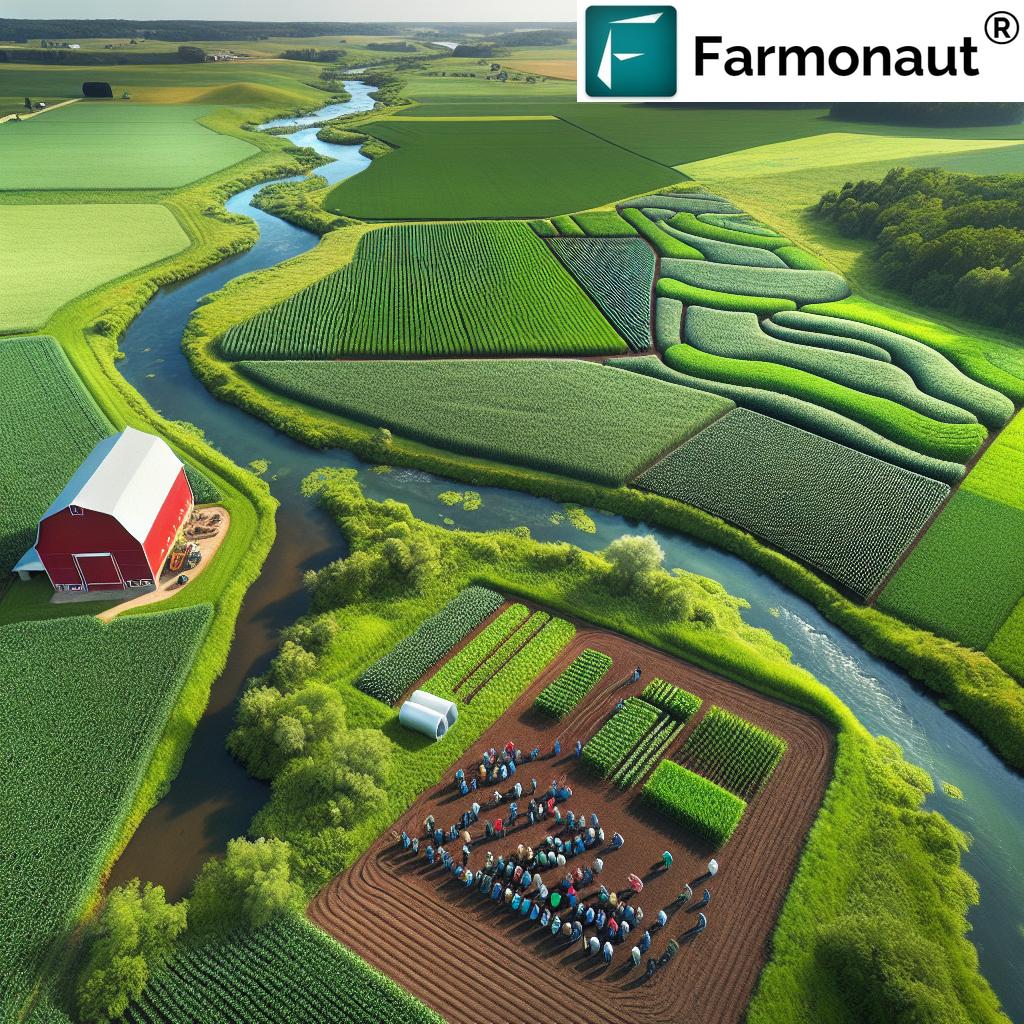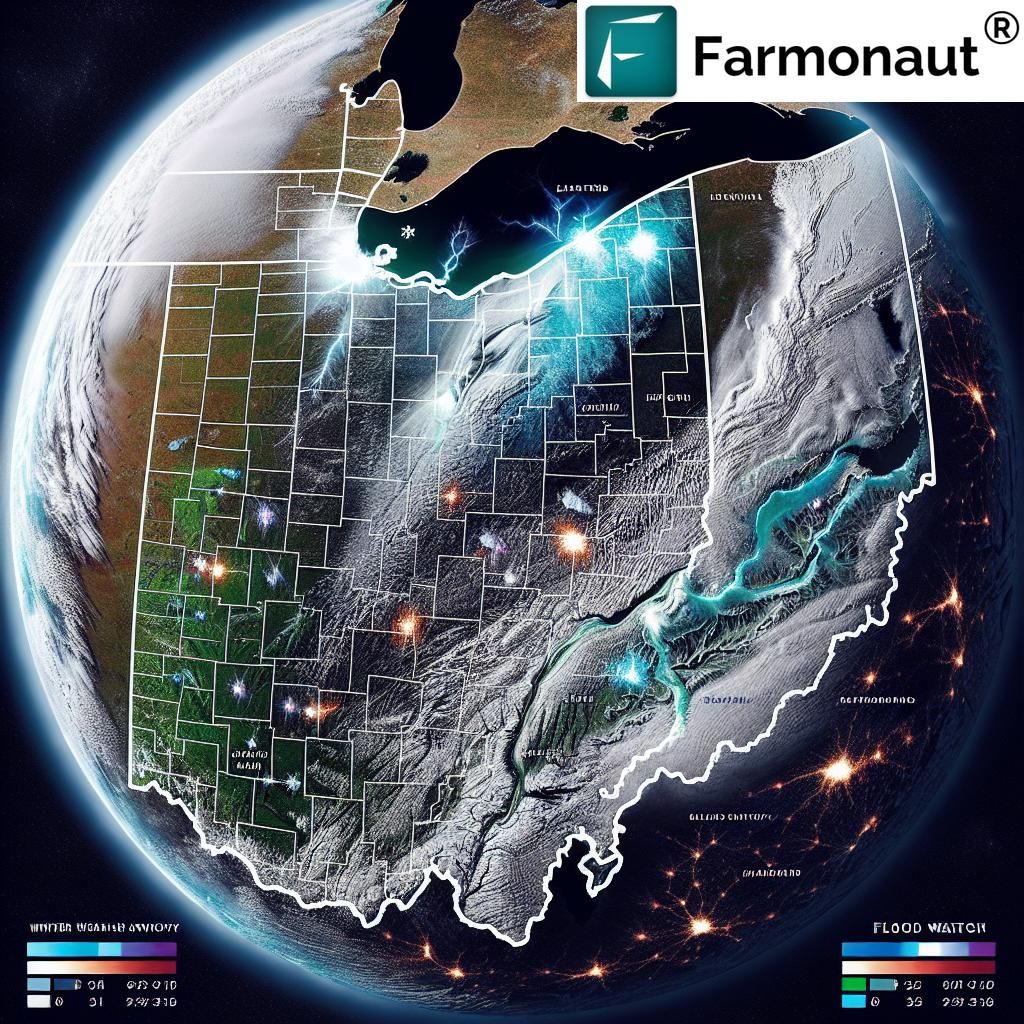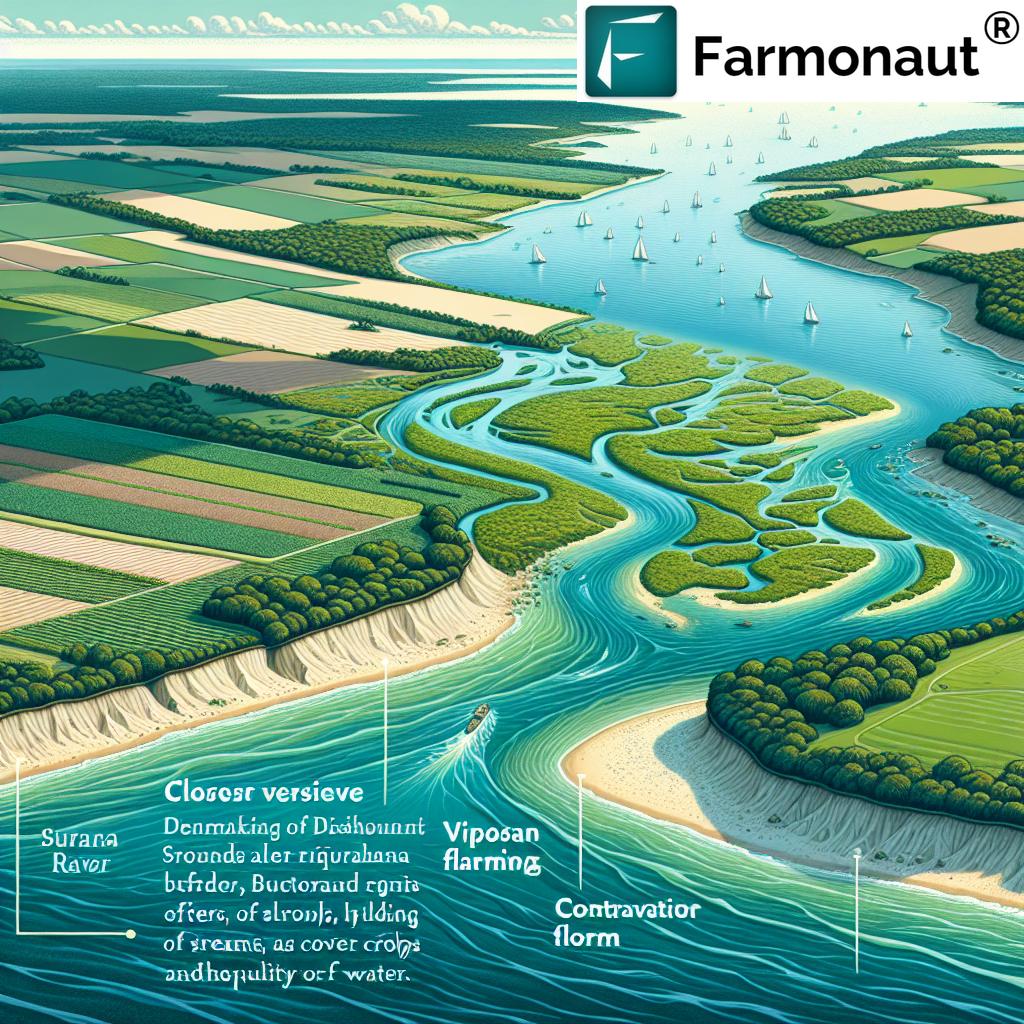Unlocking Global Food Security: Mississippi Conference Explores Agriculture’s Role in National Defense and Competitive Statecraft
“The Mississippi conference on agriculture and national security brought together experts from 3 key sectors: military, agricultural, and food.”
In an era where global food security is increasingly intertwined with national defense and international relations, we at Farmonaut recognize the critical importance of understanding these complex interconnections. Recently, a groundbreaking conference held in Starkville, Mississippi, brought together leading experts from diverse fields to explore the pivotal role of agriculture in national security and competitive statecraft. This event not only highlighted the challenges we face but also showcased innovative approaches to promoting food stability and resilience on a global scale.
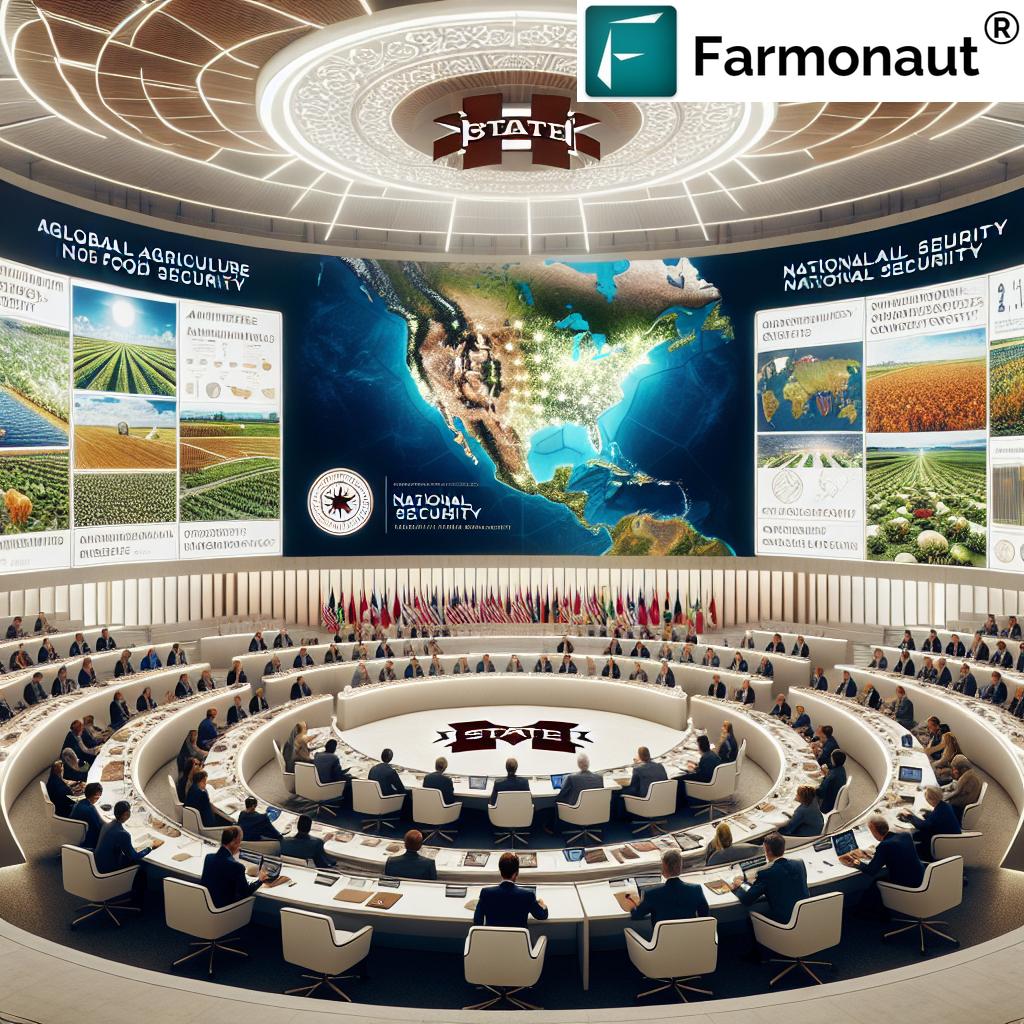
The Convergence of Agriculture, National Security, and Global Politics
The conference, hosted by Mississippi State University, marked a significant milestone in recognizing the strategic importance of agriculture in global politics and competitive statecraft. As experts from military, agricultural, and food sectors convened, the event underscored the need for interdisciplinary partnerships in addressing pressing global food security challenges.
Key topics discussed included:
- The role of agriculture in national defense strategies
- Food security as a cornerstone of global stability
- Innovative approaches to sustainable agriculture
- The impact of climate change on food production and security
- Technological advancements in agriculture and their geopolitical implications
At Farmonaut, we understand the importance of leveraging technology to address these global challenges. Our satellite-based farm management solutions contribute to enhancing agricultural productivity and sustainability, aligning with the conference’s focus on innovative approaches to food security.
Establishment of the Food and Agriculture as Competitive Statecraft Collaboratory
One of the most significant outcomes of the conference was the announcement of the Food and Agriculture as Competitive Statecraft Collaboratory. This innovative initiative aims to advance research, policy, and strategies at the nexus of food, agriculture, and national security. The collaboratory will serve as a hub for interdisciplinary partnerships among researchers, policymakers, and industry leaders, exploring the strategic role of agriculture in competitive statecraft and global security.
Keith Coble, Vice President for the Division of Agriculture, Forestry, and Veterinary Medicine at Mississippi State University, emphasized the importance of this new venture: “By launching the Food and Agriculture as Competitive Statecraft Collaboratory, Mississippi State is taking a bold step to connect expertise across disciplines and tackle the challenges that link agriculture with national and global stability.”
This initiative aligns closely with our mission at Farmonaut to make precision agriculture accessible and affordable to farmers worldwide. By integrating innovative technology and data-driven insights into traditional farming practices, we contribute to the broader goal of enhancing global food security.
Insights from Key Speakers
The conference featured notable speakers who shared invaluable insights on the intersection of agriculture, national security, and global politics:
- U.S. Army Lt. Gen. (R) Charles T. Cleveland emphasized the importance of harnessing the collective expertise of American universities, particularly agricultural colleges, in addressing global challenges. He stated, “The intellectual strength of America is spread across its institutions of higher learning. The key is to harness the collective expertise of our universities, particularly our agricultural colleges, which study farming practices comparable to those in regions across the globe.”
- Chase Sova, World Food Program USA Vice President for Advocacy and Engagement, highlighted the critical link between food security and global stability, emphasizing the need for innovative solutions to combat hunger and malnutrition worldwide.
- Dan Gustafson, Special Representative of the U.N. Food and Agriculture Organization Director-General, discussed the importance of international cooperation in addressing global food security challenges and the role of technology in enhancing agricultural productivity.
These expert perspectives underscore the complex relationship between agriculture, national security, and international relations. At Farmonaut, we recognize the importance of staying informed about these global trends and their impact on the agricultural sector.
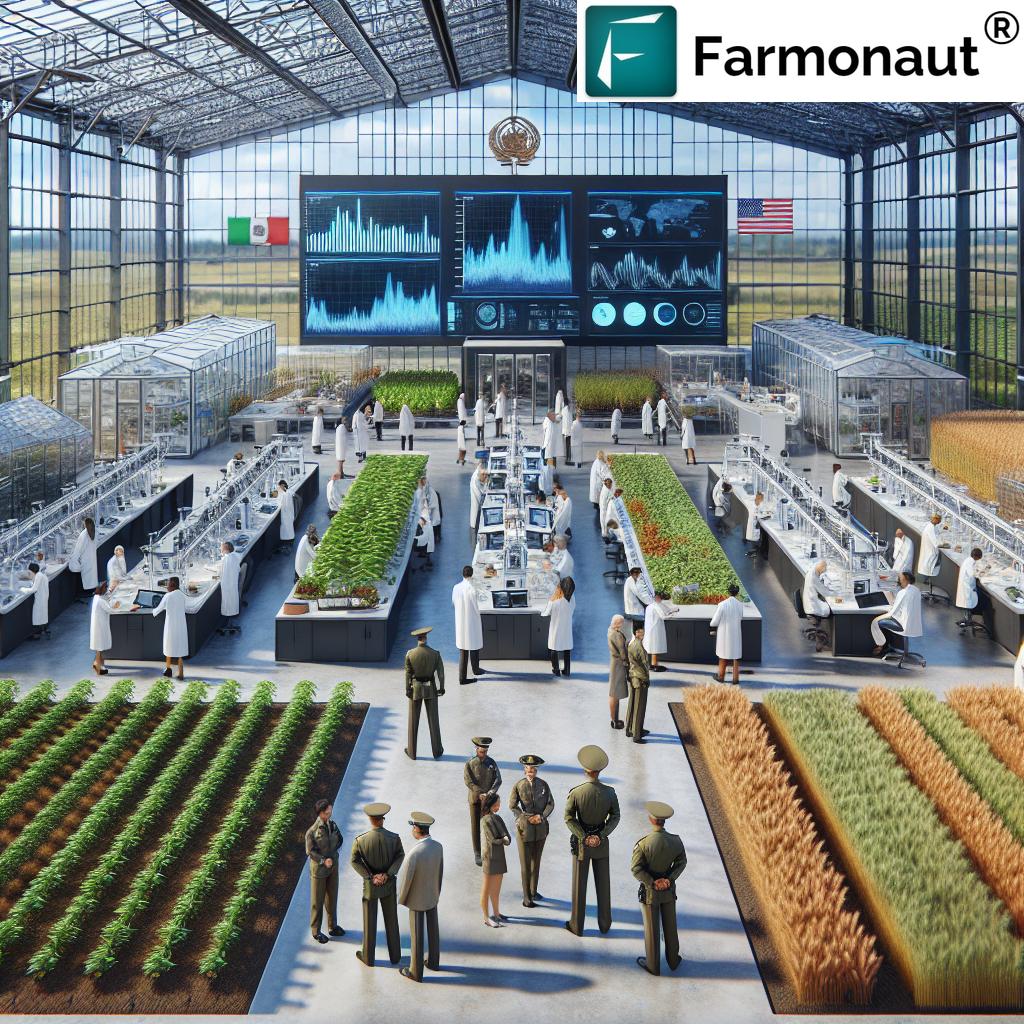
The Strategic Importance of Agriculture in Global Politics
The conference highlighted several key areas where agriculture plays a crucial role in global politics and competitive statecraft:
- Food Security as a National Security Issue: Ensuring a stable and sufficient food supply is essential for maintaining social stability and preventing conflicts both domestically and internationally.
- Agricultural Trade and Diplomacy: The global trade of agricultural products can be a powerful tool in international relations and economic diplomacy.
- Climate Change and Resource Management: As climate change impacts agricultural production worldwide, effective resource management becomes crucial for national security and global stability.
- Technological Innovation in Agriculture: Advancements in agricultural technology, such as those offered by Farmonaut, can significantly impact a nation’s food production capabilities and global competitiveness.
- Biosecurity and Food Safety: Protecting agricultural resources from pests, diseases, and intentional threats is vital for national security and public health.
These aspects demonstrate the multifaceted nature of agriculture’s role in national defense and competitive statecraft. As a company at the forefront of agricultural technology, Farmonaut is committed to contributing to these important areas through our innovative solutions.
Innovative Approaches to Promote Food Stability
The conference showcased several innovative approaches to promoting food stability and resilience in global food systems. These include:
- Precision Agriculture: Utilizing advanced technologies like satellite imagery and AI to optimize crop yields and resource use. Farmonaut’s platform exemplifies this approach, offering real-time crop health monitoring and AI-based advisory systems.
- Sustainable Farming Practices: Implementing techniques that maintain soil health, conserve water, and reduce environmental impact.
- Crop Diversification: Encouraging the cultivation of a variety of crops to enhance food system resilience and nutrition security.
- Blockchain in Agriculture: Leveraging blockchain technology for improved traceability and transparency in food supply chains. Farmonaut’s blockchain-based traceability solution contributes to this innovative approach.
- Climate-Smart Agriculture: Developing farming methods that are adaptable to changing climate conditions and help mitigate greenhouse gas emissions.
These approaches align closely with Farmonaut’s mission to integrate innovative technology and data-driven insights into traditional farming practices, making precision agriculture accessible and affordable to farmers worldwide.
Explore Farmonaut’s API for advanced agricultural data
“A new collaboratory announced at the conference aims to advance policy strategies for resilience in global food systems across 195 countries.”
Educating the Next Generation: A New Course on Agriculture and International Relations
An exciting development announced at the conference was the introduction of a new course at Mississippi State University, designed to bridge the gap between global politics, agriculture, and national security. This course will provide students with valuable insights into the complex relationship between these fields, preparing them for future careers at the intersection of agriculture and international relations.
Key aspects of the course include:
- Understanding the geopolitics of food and agriculture
- Analyzing the impact of agricultural policies on international relations
- Exploring the role of technology in shaping global agricultural landscapes
- Examining case studies of agriculture’s influence on national security
- Developing strategies for addressing global food security challenges
This educational initiative underscores the growing recognition of agriculture’s critical role in global affairs and the need for interdisciplinary expertise in addressing complex challenges. At Farmonaut, we support such educational efforts and believe in the importance of nurturing the next generation of agricultural experts and policymakers.
The Role of Technology in Advancing Agricultural Expertise
As the conference highlighted the need for interdisciplinary partnerships and innovative approaches to global food security challenges, it’s important to recognize the pivotal role that technology plays in this arena. At Farmonaut, we are at the forefront of this technological revolution in agriculture, offering advanced solutions that contribute to enhanced productivity, sustainability, and resilience in farming practices worldwide.
Our satellite-based farm management solutions provide farmers with:
- Real-time crop health monitoring using multispectral satellite imagery
- AI-driven personalized farm advisory through our Jeevn AI system
- Blockchain-based product traceability for enhanced supply chain transparency
- Fleet and resource management tools for optimized agricultural operations
- Carbon footprint tracking to promote sustainable farming practices
These technologies align closely with the conference’s focus on innovative approaches to food security and agricultural resilience. By making such advanced tools accessible and affordable, we contribute to the broader goal of enhancing global food security and supporting the strategic importance of agriculture in competitive statecraft.
Access Farmonaut’s API Developer Docs for integration guidance
Global Food Security Impact Matrix
| Agricultural Sector | National Security Implications | Competitive Statecraft Strategies |
|---|---|---|
| Crop Production |
• Domestic food supply stability (Impact: 5/5) • Economic stability |
• Investment in drought-resistant crop research • Promotion of sustainable farming practices |
| Food Distribution |
• Social stability (Impact: 4/5) • Resilience to external shocks |
• Development of robust supply chain networks • Implementation of food reserve systems |
| Agricultural Technology |
• Increased food production efficiency (Impact: 4/5) • Reduced vulnerability to environmental threats |
• Investment in precision agriculture research • Promotion of agtech startups and innovation |
| International Trade |
• Economic leverage in diplomacy (Impact: 3/5) • Global market stability |
• Strategic trade agreements for agricultural products • Development of niche high-value crop markets |
This matrix illustrates the complex interplay between agriculture, national security, and competitive statecraft, highlighting key areas of focus discussed at the Mississippi conference. It underscores the multifaceted nature of global food security and the need for comprehensive strategies to address related challenges.
The Path Forward: Collaborative Efforts for Global Food Security
The Mississippi conference on agriculture and national security has set the stage for increased collaboration and innovation in addressing global food security challenges. As we move forward, it’s clear that interdisciplinary partnerships, technological advancements, and strategic policy-making will play crucial roles in ensuring food stability and resilience worldwide.
At Farmonaut, we are committed to contributing to this important mission by:
- Continuously improving our satellite-based farm management solutions
- Collaborating with research institutions and policymakers to advance agricultural technology
- Promoting sustainable farming practices through our AI-driven advisory systems
- Enhancing supply chain transparency with our blockchain-based traceability solutions
- Supporting farmers worldwide in adopting precision agriculture techniques
By working together across sectors and disciplines, we can build a more secure and resilient global food system that supports national security, fosters international cooperation, and ensures a sustainable future for agriculture worldwide.
Frequently Asked Questions (FAQ)
- What was the main focus of the Mississippi conference on agriculture and national security?
The conference explored the critical intersection of food and agriculture with national security and competitive statecraft, bringing together experts from military, agricultural, and food sectors. - What is the Food and Agriculture as Competitive Statecraft Collaboratory?
It’s a newly announced initiative aimed at advancing research, policy, and strategies at the nexus of food, agriculture, and national security, serving as a hub for interdisciplinary partnerships. - How does agriculture impact national security?
Agriculture affects national security through food supply stability, economic impacts, resource management, and its role in international relations and diplomacy. - What role does technology play in addressing global food security challenges?
Technology, such as Farmonaut’s satellite-based solutions, plays a crucial role in enhancing agricultural productivity, sustainability, and resilience, contributing to global food security. - How can individuals contribute to global food security efforts?
Individuals can support sustainable farming practices, stay informed about agricultural policies, and utilize technologies that promote efficient and sustainable food production.
Conclusion: A Call to Action for Global Food Security
The Mississippi conference on agriculture’s role in national defense and competitive statecraft has illuminated the critical importance of addressing global food security challenges through collaborative, innovative approaches. As we move forward, it’s essential for stakeholders across all sectors – from policymakers and researchers to farmers and technology providers – to work together in developing comprehensive solutions.
At Farmonaut, we remain committed to playing our part in this global effort by providing cutting-edge, accessible agricultural technology solutions. We invite you to join us in this mission by exploring our platform and leveraging our tools to enhance agricultural productivity and sustainability.
Earn With Farmonaut: Join our Affiliate Program
Earn 20% recurring commission with Farmonaut’s affiliate program by sharing your promo code and helping farmers save 10%. Onboard 10 Elite farmers monthly to earn a minimum of $148,000 annually—start now and grow your income!
Together, we can work towards a more secure, sustainable, and resilient global food system that supports national security and fosters international cooperation.





